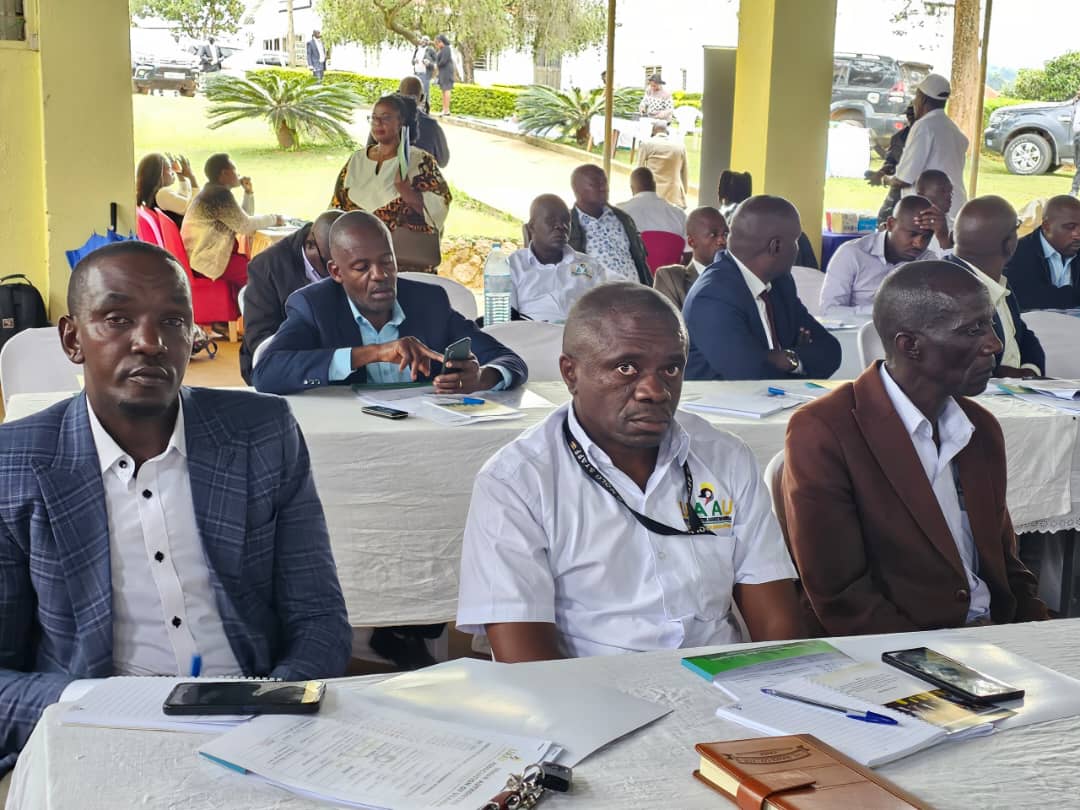Trash to Treasure: Western Uganda Urban Leaders Challenged to Rethink Waste and Land

Urban authorities in Western Uganda have been urged to take a more strategic and proactive approach to waste management and land use, seen as crucial levers for sustainable city growth.
The call came during a meeting of the Western Region Urban Authorities Association of Uganda (UAAU) in Rukungiri Municipality, where officials pushed for deliberate investments and policy alignment.
Charles Magumba, commissioner for urban administration at the Ministry of Local Government, speaking on behalf of Permanent Secretary Ben Kumumanya, told municipal leaders that effective waste handling begins at the household level and can be transformed from a burden into an economic opportunity.
“We must change our mindset and begin to treat waste as a raw material for new opportunities,” said Magumba.
“When households start segregating waste, and when municipalities build efficient systems for collection, disposal, and recycling, we can unlock both environmental and economic value.”
Magumba announced that a new National Waste Management Policy, drafted in consultation with multiple ministries, is nearing completion and will soon be presented for approval.
The policy aims to offer a unified framework governing the entire lifecycle of waste, from its generation to reuse.
He also urged urban leaders to protect public land, describing it as a vital asset for development.
Municipalities that guard against encroachment, he said, stand a better chance of attracting private investment through public-private partnerships.
“When government land is preserved and offered as equity, it becomes a powerful tool in drawing partners,” Magumba said.
“With land and a good urban plan, private capital will follow.”
UAAU President Sanya K.F. Wilson echoed the emphasis on long-term planning, reminding urban leaders that cleaner, smarter, and better-organised cities require committed leadership and shared vision.
“Urban transformation doesn’t happen by chance,” he said.
“It requires leaders who are committed to making cities clean, organized, and economically viable.”
Sanya called for innovation, regional cooperation, and a collective approach to addressing urban challenges.
“We cannot develop our municipalities in isolation,” he said.
“Sharing experiences and harmonizing strategies is key to moving forward.”
The Rukungiri meeting, the first of four regional engagements scheduled between May 7 and 23, 2025, drew together a wide array of municipal actors including mayors, town clerks, division administrators, and council chairpersons.
It opened a broader series of dialogues that will continue in Kitgum (Northern), Kapchorwa (Eastern), and Mubende (central) regions.
Participants also raised the issue of local revenue collection, calling for harmonised fee structures and transparency in levies imposed on businesses.
Leaders stressed that municipalities need autonomy to generate and manage resources without creating regulatory confusion or discouraging investment.
The meeting closed with a renewed commitment to collective action. “Our strength lies in our collective voice and coordinated action,” one participant remarked.
“Only then can we deliver urban services that meet the needs of our people today, and preserve opportunities for the generations to come.”
At a regional meeting in Rukungiri, urban authorities were called upon to view waste as an economic resource and public land as a catalyst for private investment, as part of a broader push for smarter, more sustainable urban governance



0 Comments